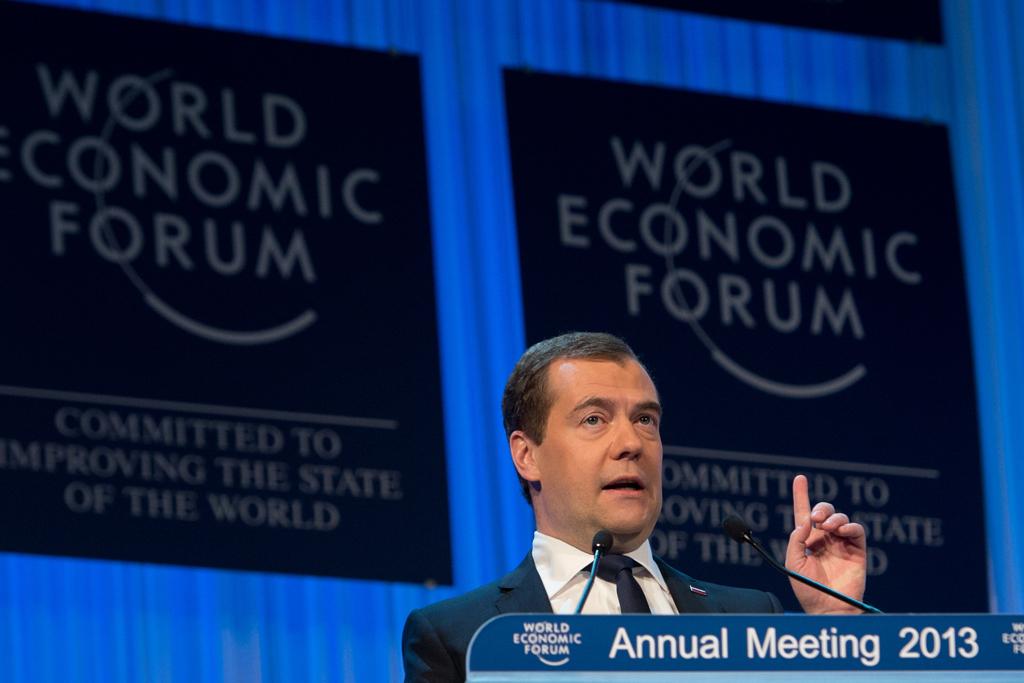Russia assures investors over reforms at Davos
Russian Prime Minister Dmitry Medvedev addresses a session of the annual World Economic Forum (WEF) meeting in Davos, Switzerland, on Jan. 23, 2013.
Investors worldwide continue to be skeptical toward Russia, confounded by whether real reforms will bring structural changes. During the World Economic Forum, the Russian delegation has been trying to reassure investors in order to reverse capital outflows that have reached more than $350 billion since 2007, even though outflows have been slowing more recently.
Sergey Belyakov, Russia's deputy minister of economic development, told CNBC about the government's efforts to lure investors:
"First, creating an enabling environment for investments, and this is a large portion of our government's agenda today … We are not basing ourselves on the number of laws we have adopted but on how comfortable and how enabling the environment is. This is a new policy and the results so far have been encouraging, both for me and the foreign investors."
Every day, reporters and producers at The World are hard at work bringing you human-centered news from across the globe. But we can’t do it without you. We need your support to ensure we can continue this work for another year.
Make a gift today, and you’ll help us unlock a matching gift of $67,000!
